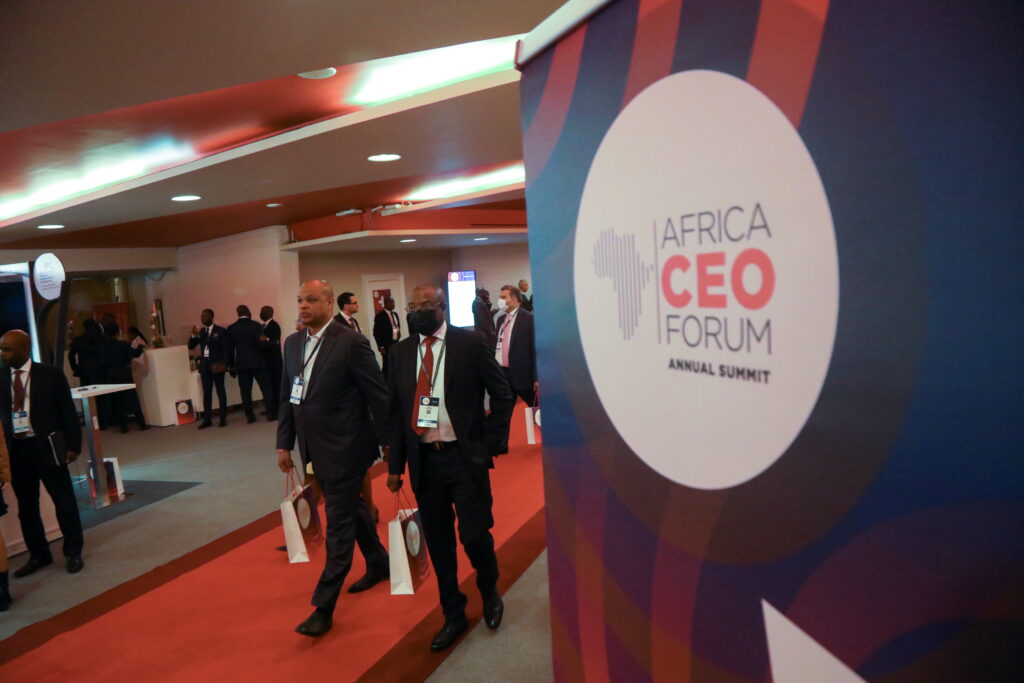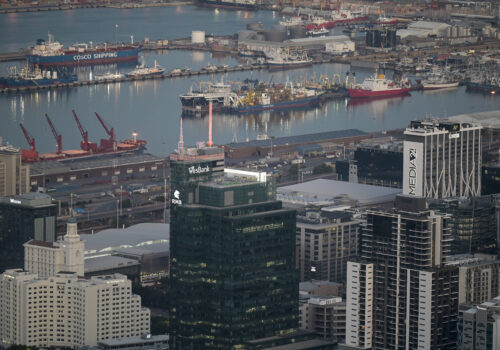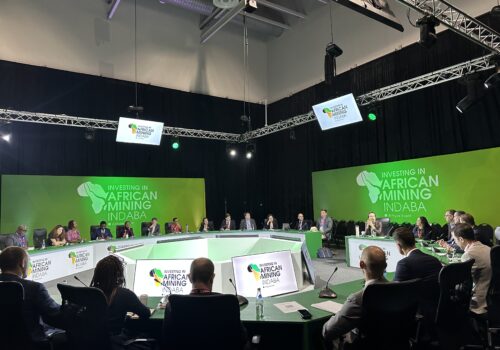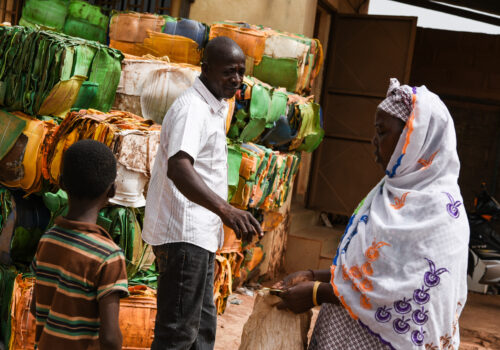Over the past two months, US President Donald Trump has signed multiple directives that significantly impact multilateral policies across Africa.
One such directive is the ninety-day suspension of all US foreign development assistance programs. As a result of such executive orders, projects that can be considered US geopolitical investments in Africa—such as the billion-dollar Lobito Corridor, which the US State Department calls the “most significant transport infrastructure that the United States has helped develop on the African continent in a generation”—now face an uncertain future. This underscores the broader implications of the administration’s evolving approach to US-Africa relations.
While Trump’s broader strategy for the continent remains unclear, he has emphasized a commitment to strengthening business partnerships that align with US interests. Accordingly, his administration has proposed redirecting funding from the US Agency for International Development to the US International Development Finance Corporation, an institution established during Trump’s first term. This approach demonstrates a shift in focus from traditional humanitarian aid to prioritizing private equity firms, hedge funds, and other investors, aligning with a broader US strategy to enhance economic influence globally.
As the continent adjusts to evolving global economic dynamics and changes in US policy, it is critical that Africa reduces its external dependency by embracing regional cooperation, financial autonomy, and sustainable investments.
The private sector will play a key role in reducing this dependency. And on May 12 and 13, African business leaders, investors, and policymakers will be gathering at the Africa CEO Forum in Abidjan, Côte d’Ivoire, to exchange ideas, identify opportunities, and cultivate solutions that promote economic growth and sustainable development across Africa. The participants at the forum are also slated to discuss the United States’ policy shifts, exploring both difficulties and opportunities that arise from the changes.
As Africa navigates a shifting global landscape, the Africa CEO Forum must serve as a launchpad for strategies that reduce external dependency, enhance regional collaboration, and prioritize sustainable investment. In order for that to happen, public- and private-sector leaders convening at the forum must commit to expanding public-private partnerships, blended finance, and other measures to get Africa closer to its goal of becoming a global economic leader.
Expanding public-private partnerships would enhance Africa’s self-sufficiency while ensuring long-term economic resilience. These partnerships should be fostered in renewable energy, agribusiness, manufacturing, and, particularly, healthcare. A robust healthcare system boosts productivity, reduces preventable economic losses, and strengthens human capital. One example of such a partnership can be seen in Rwanda, where the government recently launched a partnership with US robotics company Zipline to deliver blood and other medical equipment to remove areas via drone. To sustain growth in Africa and equip the workforce to drive the continent’s industries and innovation, partnership and investment in healthcare, alongside infrastructure and digital transformation, are needed.
African governments and businesses must also commit to strengthening engagement with the United States and global partners through trade, investment, and infrastructure development while expanding financial partnerships with institutions such as the African Development Bank. Blended financing models—that include sources of funding such as private-public partnerships, sovereign wealth funds, and investments (from wealthy countries such as the Gulf states)—are key to bridging funding gaps. African leaders should more intently push Group of Twenty (G20) nations, multilateral banks, and private investors for fairer trade agreements, climate financing, and infrastructure investment.
African countries can also implement measures to support the African business environment. For example, they should take up debt restructuring processes and negotiations (led by the International Monetary Fund) with creditors such as China and the Paris Club. Doing so can ease financial burdens on governments, allowing them to invest more in infrastructure, education, and services that support businesses. Meanwhile, major economies such as Nigeria, South Africa, and Egypt should also implement fiscal reforms and anti-corruption measures to ensure that public funds are being used effectively—a sign that would show businesses that they can expect a more predictable environment. Strengthening the African Continental Free Trade Area would boost regional trade and local manufacturing by requiring harmonized tariffs, streamlining customs, and improving logistics with roads, airline hubs, and hub-and-spoke ports.
It is important to pursue these partnerships and measures now. In November, global leaders will convene in Johannesburg for the G20 Summit—the first hosted by an African country. Thus, participants at the Africa CEO Forum must seize this opportunity to advance Africa toward becoming a self-sustained economic power.
Anthony Manga is the founder and chief executive officer of Manga Global, a business advisory and trade facilitation firm.

The Africa Center works to promote dynamic geopolitical partnerships with African states and to redirect US and European policy priorities toward strengthening security and bolstering economic growth and prosperity on the continent.
Further reading
Mon, Mar 31, 2025
How Trump could upend global finance—and how the world might respond
AfricaSource By
Concerns are growing—particularly among policymakers and experts in “New South” countries—about the direction in which the international financial system is heading.
Thu, Mar 27, 2025
Prioritizing access to critical minerals will require prioritizing Africa
AfricaSource By Benjamin Mossberg
Access to critical minerals is an urgent national security issue. The United States must view investments in African energy, mineral, and mining—key to securing this access—with similar importance.
Fri, Mar 21, 2025
In the scramble for Africa’s critical minerals, the West must not abandon the ESG agenda
AfricaSource By
As this race for minerals and metals critical for the energy transition heats up, both companies and governments must not abandon environmental, social, and governance principles in Africa.
Image: Participants walk during the Africa CEO Forum at the Sofitel Hotel Ivoire in Abidjan, Ivory Coast June 13, 2022. REUTERS/Luc Gnago




